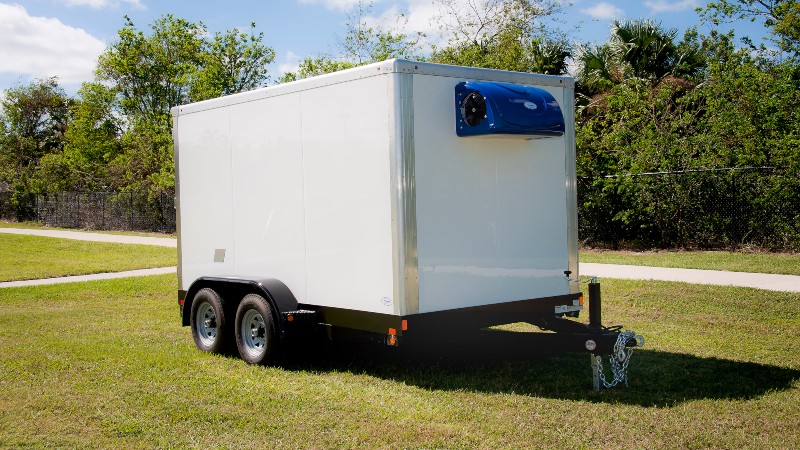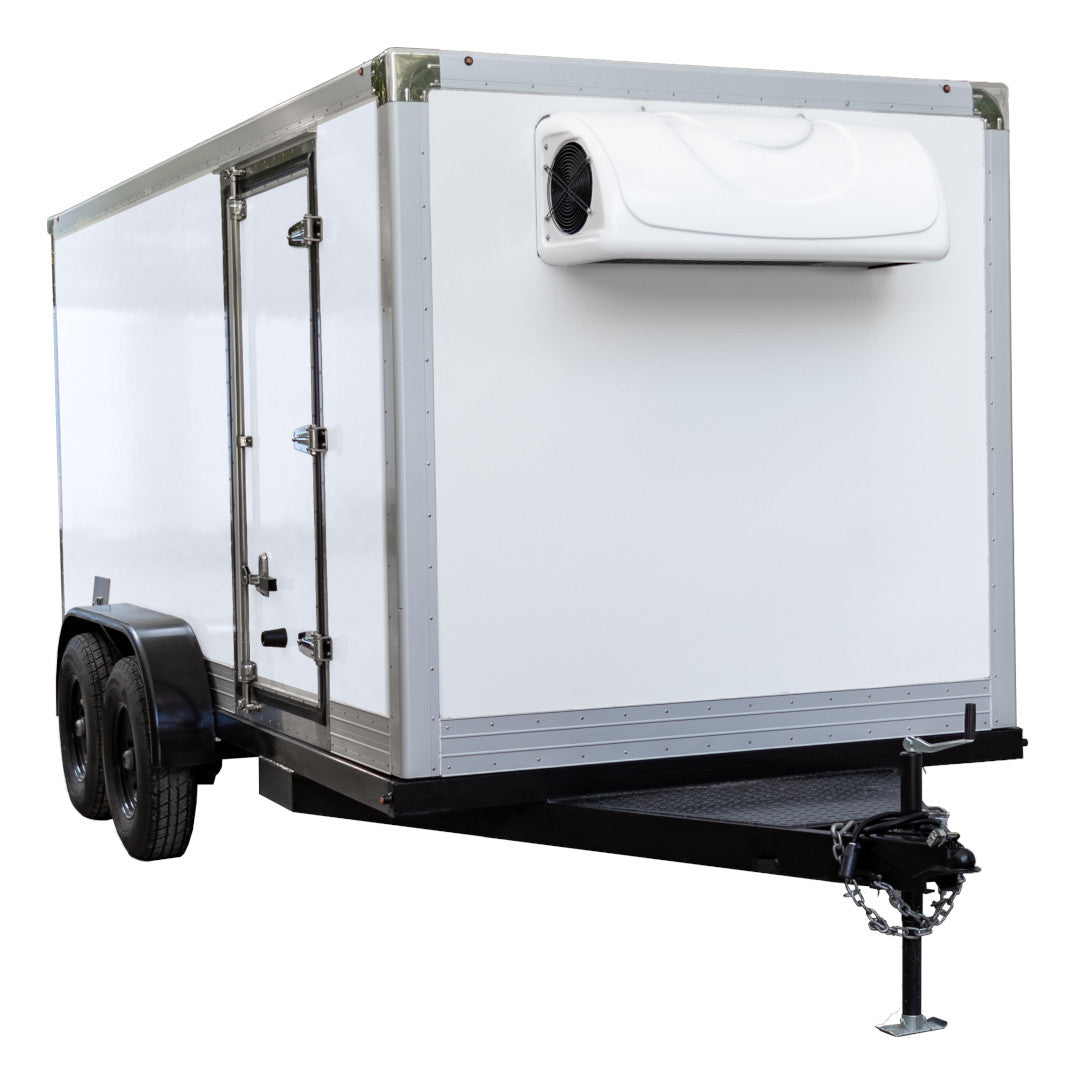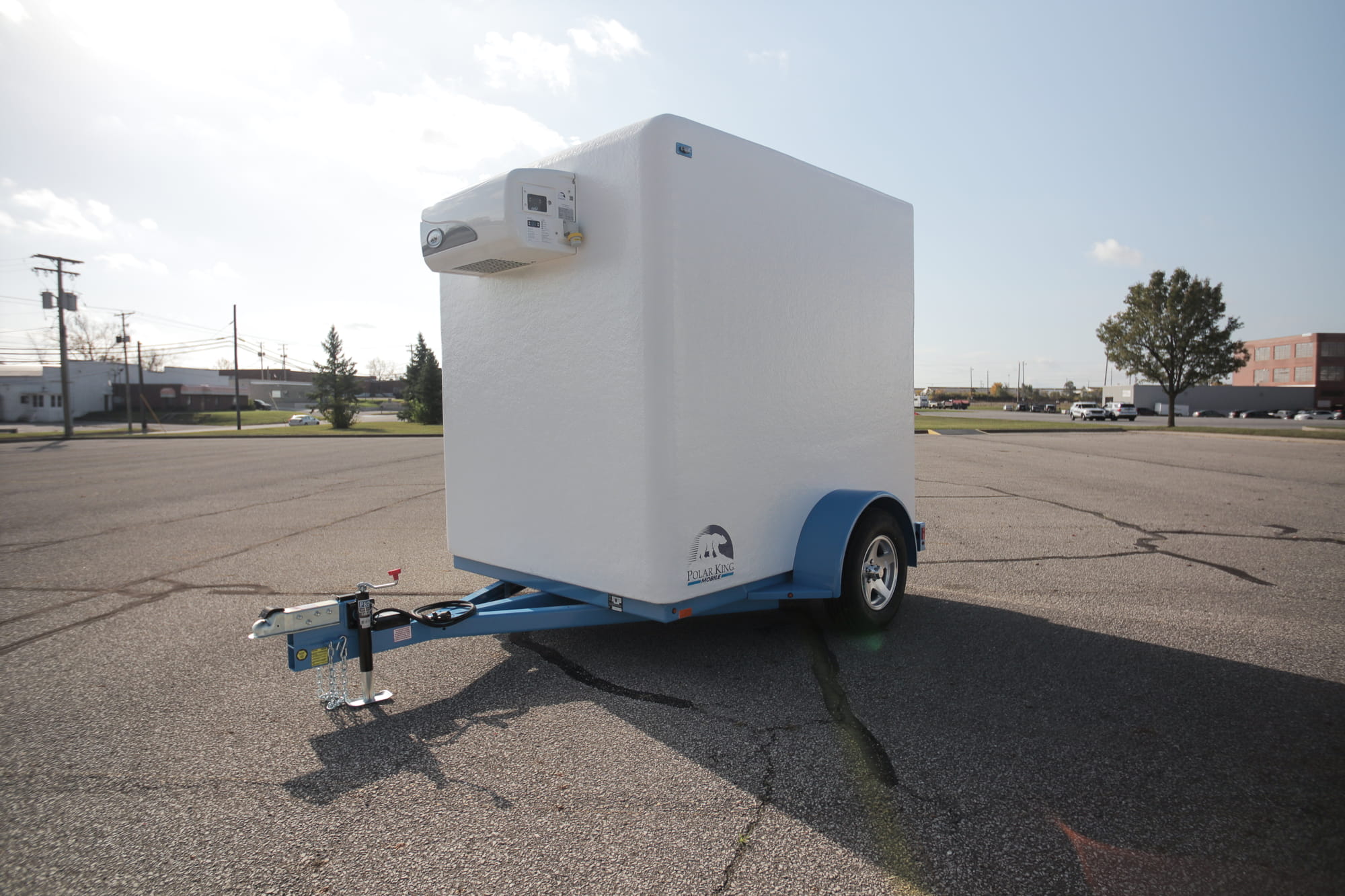Small Refrigerated Trailer-Cooler Trailers: Your Mobile Air Conditioning Solution
Small Refrigerated Trailer-Cooler Trailers: Your Mobile Air Conditioning Solution
Blog Article
The Ultimate Guide to Picking the most effective Cooled Trailers
When it comes to selecting the suitable chilled trailer for your service demands, various variables should be very carefully taken into consideration to guarantee optimum performance and effectiveness. From the various kinds of refrigerated trailers offered to the vital functions such as dimension, temperature level control, and energy effectiveness, each facet plays an essential function in establishing the best fit for your particular demands.
Sorts Of Refrigerated Trailers

The 2 main kinds of chilled trailers are reefer trailers and insulated trailers. Reefer trailers, brief for refrigerated trailers, are outfitted with cooling systems that proactively manage the interior temperature level to maintain subject to spoiling products at the necessary conditions during transport.

Size Considerations
Taking into consideration the measurements of the cooled trailer is necessary to ensure optimum storage capacity and effective transportation of subject to spoiling products. When selecting the dimension of a refrigerated trailer, it is crucial to take right into account the volume of items that need to be transported. Bigger trailers provide even more storage area, making them ideal for services with substantial delivery needs. Smaller sized trailers are much more cost-efficient and maneuverable for services with minimal tons or minimal storage space at their facilities.
An additional factor to consider when figuring out the dimension of the chilled trailer is the measurements of the goods being transferred. Some items might have details dimension needs or require to be piled in a certain fashion to prevent damage. Picking a trailer dimension that fits the dimensions of the goods will aid keep their top quality throughout transit.

Temperature Level Control Attributes
Reliable monitoring of temperature control in refrigerated trailers is crucial for maintaining the high quality and safety of perishable products during transport. When choosing a refrigerated trailer, it is navigate to these guys important to think about the temperature control includes it provides. Look for trailers furnished with advanced temperature level tracking systems that give real-time data on the indoor conditions. These systems need to have exact temperature setups and alerts for any type of deviations, making certain that the cargo stays within the required temperature array.
Moreover, some refrigerated trailers feature multi-zone temperature level control capabilities, enabling various areas to maintain varying temperature levels as required for various sorts of products. When delivering a mix of subject to spoiling items with distinct temperature demands, this function is especially helpful. In addition, trailers with reliable insulation and temperature uniformity throughout the cargo space help prevent hot or cold spots, ensuring consistent conditions for all goods being transferred
Energy Efficiency Factors
A vital element to assess when choosing a refrigerated trailer is its energy efficiency, which plays a significant duty in lowering functional prices and ecological effect. Energy efficiency factors to take into consideration consist of the insulation high quality of the trailer, the type of refrigeration system used, and any added attributes that add to decreasing energy intake. Top notch insulation is vital as it assists maintain the wanted temperature level inside the trailer with very little energy loss. Modern refrigeration systems, such as those making use of sophisticated technology like electrical standby choices or solar power, can additionally improve energy performance. Furthermore, features like automated defrost cycles, temperature monitoring systems, and reliable airflow layout can additionally optimize power usage. By focusing on energy-efficient cooled trailers, businesses can not just save on overhead but additionally decrease their carbon impact, making a positive payment to sustainability efforts in the transport industry.
Maintenance and Solution Tips
Offered the vital duty of power efficiency in minimizing functional prices, it is vital to develop a proactive maintenance and service routine for cooled trailers to make certain optimum performance and longevity. On a regular basis evaluating look at this now and maintaining the trailer's refrigeration device is critical. This includes checking the gaskets for any wear and tear, making sure appropriate insulation, and cleaning up the condenser and evaporator coils. Checking temperature level degrees and adjusting the thermostat occasionally can aid protect against temperature level variations that might endanger the top quality of the transported items. In addition, evaluating the trailer's tires, brakes, lights, and electrical systems is important to ensure reputable and risk-free operation. Collaborating with a trusted company for regular upkeep checks and attending to any type of issues promptly can significantly expand the life-span of the cooled trailer. Implementing a detailed upkeep routine and keeping thorough documents of all service and repairs performed can help in identifying fads, enhancing performance, and decreasing unforeseen breakdowns.

Conclusion
Finally, picking the best refrigerated trailer entails thinking about numerous factors such as the official site kind of trailer, size demands, temperature control attributes, power performance, and upkeep demands. By examining these elements very carefully, organizations can ensure they pick a chilled trailer that fulfills their specific demands and requirements, inevitably leading to more reliable transportation and storage of temperature-sensitive products.
The two key kinds of chilled trailers are reefer trailers and shielded trailers (small refrigerated trailer- cooler trailers). Reefer trailers, short for refrigerated trailers, are geared up with cooling systems that actively regulate the internal temperature to keep perishable goods at the required problems throughout transportation.On the other hand, protected trailers are designed to keep the temperature of the products making use of the insulation residential or commercial properties of the trailer walls. While they do not have energetic cooling systems like reefer trailers, insulated trailers are appropriate for products that require protection from exterior temperature level variants yet do not require as stringent temperature level control as perishable items.Effective monitoring of temperature level control in refrigerated trailers is crucial for preserving the quality and safety of perishable products during transportation
Report this page